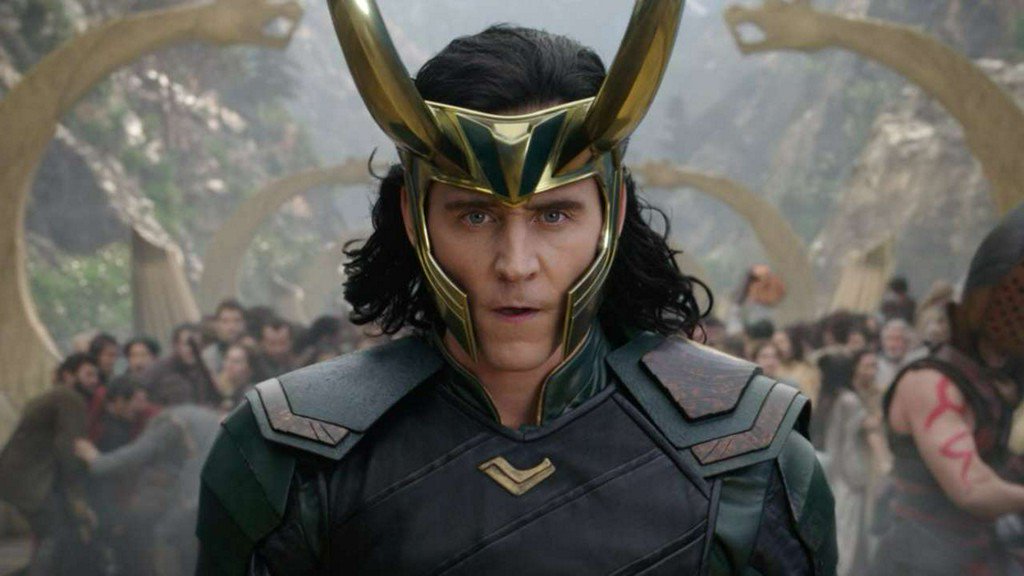Loki: How different the Marvel anti-hero is from the original god of mischief in Norse mythology

"Of course it was Loki. It's always Loki." ― Neil Gaiman, Norse Mythology
Considering the overpowering influence of Marvel comics and films in the world today, it wouldn't be surprising if many forgot that the Norse Gods weren't created by the comics or films, vivid as it might be. Thor and Loki, the Gods of Asgard and the Nine Realms, are elements of popular Norse folklore.
Loki, the god of mischief, is a fascinating character. In a world where superheroes remain bound by ideals, it was refreshing to see this endearing villain, who switches loyalties at the drop of a hat.
Marvel's Loki
The 'Thor' trilogy and 'Avengers' films portrayed the complex relationship between Thor (Chris Hemsworth) and his brother Loki (Tom Hiddleston). Loki was famous for his tricks that perhaps grew rather sinister, and as a result, Thor was never able to completely trust him.
In 'Avengers', Loki is determined to take over the Earth and is then arrested for his crimes in 'Thor: The Dark World'. In 'Thor: Ragnarok', Loki struggles to mend his ways, despite the occasional slip-ups. He eventually helps Thor save Asgard from Ragnarok.
In 'Avengers: Infinity War', Loki is killed by Thanos, in 'Avengers: Endgame'. However, we get to see a brief glimpse of him in 'Avengers: Endgame', as he escapes into an alternate timeline.
As films can only just about scrape the surface of the comic book material, many of his twisted and complicated comic book arcs were left out, for obvious reasons.
Yet the image of Loki that has now become etched in our minds is, is a smooth-talking and shape-shifting trickster, who did have a fondness for his brother buried in him somewhere.
But that's just the films and comics. How was the original Loki from Norse mythology different?
Norse mythology's Loki
Loki is an enigma. He is one of the most debated figures in North mythology, and for good reason. On the surface, he appears to be a scheming and mischievous god who can switch loyalties easily, however, his tales are of much interest to scholars.
According to 'Gylfaginning in the Prose Edda', Loki was the son of Farbauti, a Jotunn (giant) and Laufey. Býleistr and Helblindi were his brothers. The Jotuns were at war with the AESir (the pantheon of gods in Norse religion), and needless to say, the two sides were enemies.
Loki, the son of a goddess and a giant, is caught between these warring factions throughout mythology. Loki is quite the ladies man and a casanova.
While being married to minor goddess Sigyn, he has had affairs, the most notable being Angrboða. Their children are Hel, the queen of Niflheim, Fenrir, the wolf who is prophesied to kill Odin at Ragnarök, and Jörmungandr, the World Serpent banished to the seas.
And, if you thought Loki's story in the comic book was weird — here's something for you. Loki, is also the mother of Odin's eight-legged steed Sleipnir — after Loki had sex with a powerful male stallion while disguised as a mare. Yup. You read that right.
Loki's relationship with Thor
Here's a shocker for Marvel fans. Thor and Loki aren't really brothers. According to one text — 'Lokasenna' — Loki is an Aesir, only because he swore an oath of blood-brothership to Odin. This makes him Thor's step-uncle? And you thought that the comic books were weird.

In 'Lokasenna', Thor and Loki have a conflicted relationship. There's a tale of how Thor tries to silence Loki with Mjolnir, while Loki continues to insult him and Odin. Loki escapes from the scene and is found again, where he is tethered to a rock. He remains there till Ragnarok.
However, in 'Þrymskviða', Loki and Thor seem to have more affection for each other. Thor turns to Loki in times of aid, especially when his hammer Mjolnir goes missing. The two of them go hunting for the magical creature who has stolen their weapon.
There are many tales of Loki in Norse mythology, and they reveal numerous aspects of his personality, which is quite conflicting at points.
In the earlier sources of Norse texts, Loki was written as more for a playful trickster. As scholars read the later texts, his tricks and mischief gradually became more sinister and evil. It is difficult to come to a conclusion on whether Loki was actually "good" or "evil".
Perhaps, that's the charm of the god of mischief.










